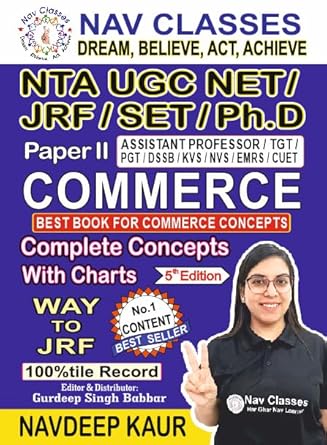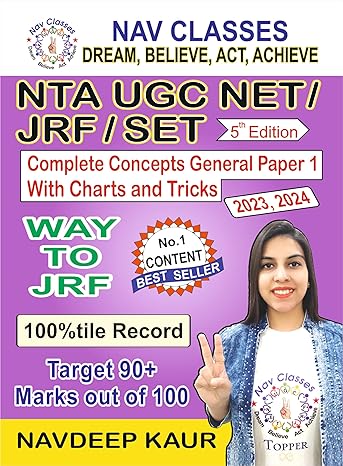Kitne Logon Ko JRF, AP, Aur Ph.D. Milta Hai?
The “Result at a Glance” provides insights into the number of candidates registered, appeared, and those who qualified for JRF, Assistant Professor, and Ph.D.-only eligibility. Here’s a breakdown of the analysis and some observations on trends, competition, and implications:
Analysis:
- Candidates Registered vs. Appeared:
- Registered Candidates: 11,21,225
- Appeared Candidates: 6,84,224
- Absentee Rate: About 39% of registered candidates did not appear for the exam. This is a significant absentee rate, which could indicate:
- Potential logistical or personal challenges for candidates.
- High registration numbers, possibly due to candidates taking a chance but not fully committed.
- A need for support initiatives, such as pre-exam counseling, to help registered candidates appear in the exam.
- JRF Qualification:
- Qualified for JRF: 4,970
- Percentage of Appeared Candidates: ~0.73% of those who appeared qualified for JRF.
- Observations: JRF is the most competitive category, with a very small percentage of candidates qualifying. The high cutoffs reflect the limited availability of fellowships and the rigorous selection process.
- Implication: Students aiming for JRF need targeted preparation to stand out in this highly competitive category.
- Assistant Professor Qualification:
- Qualified for Assistant Professor Only: 53,694
- Percentage of Appeared Candidates: ~7.85% of appeared candidates qualified for Assistant Professor.
- Observations: This category has a broader qualifying range, making it more accessible than JRF but still selective.
- Implication: Many students may find it achievable with structured and focused study, making it a practical goal for those who may not meet JRF criteria.
- Ph.D. Only Qualification:
- Qualified for Ph.D. Only: 1,12,070
- Percentage of Appeared Candidates: ~16.38% of appeared candidates qualified for Ph.D. only.
- Observations: This is the least competitive category in terms of cutoff scores, with the highest number of candidates qualifying. It provides a pathway for candidates who wish to pursue Ph.D. studies but may not qualify for JRF or Assistant Professor.
- Implication: This category is beneficial for candidates interested in academic research who are not seeking immediate teaching positions.
Suggestions:
- Targeted Preparation Programs with Nav Classes:
- Given the high competitiveness of JRF, Nav Classes’ specialized preparation programs can be invaluable. These courses should focus on intensive study strategies, critical topic analysis, and time management to cater to candidates specifically aiming for JRF.
- Nav Classes’ Test Series can help candidates assess their preparation level, improve their speed and accuracy, and get a feel for the actual exam pattern. Regular participation in these test series could boost confidence and help candidates identify and work on weak areas.
- Encouraging Full Participation with Nav Classes’ Support:
- With nearly 39% of registered candidates not appearing for the exam, Nav Classes could provide motivational sessions, reminders, and logistical support to ensure higher attendance. Free webinars or short motivational videos on YouTube could also encourage students to stay committed and take the next step in their preparation.
- Structured Pathways Aligned with Nav Classes’ Offerings:
- With distinct goals in mind (JRF, Assistant Professor, Ph.D.), Nav Classes offers tailored guidance and coaching to meet each target:
- JRF-focused courses can provide advanced content, research methodologies, and problem-solving sessions designed for those targeting the prestigious JRF fellowship.
- Assistant Professor-focused courses emphasize conceptual clarity, teaching eligibility preparation, and mastery of fundamentals, making it achievable for more students.
- Ph.D.-focused mentorship in Nav Classes supports candidates interested in academic research by covering proposal writing, research methodology, and detailed guidance on sustainable entrepreneurship and other relevant research areas.
- With distinct goals in mind (JRF, Assistant Professor, Ph.D.), Nav Classes offers tailored guidance and coaching to meet each target:
- Awareness Programs on Qualification Benefits Through Nav Classes’ YouTube Channel:
- Many candidates may not fully understand the career advantages associated with JRF, Assistant Professor, or Ph.D.-only qualifications. Nav Classes can conduct educational webinars or short videos to explain the career progression paths and benefits for each qualification. This will help students set realistic goals and motivate them to aim for higher qualifications.
- Enhanced Study Resources and Ph.D. Research Mentorship with Nav Classes:
- Since qualifying percentages are low, Nav Classes provides high-quality resources, study materials, and an in-depth test series to help candidates excel. With Navdeep Kaur’s expertise and personalized guidance, candidates can gain insights into efficient study techniques and important exam strategies.
- Ph.D. Research Mentorship by Nav Classes is especially beneficial for candidates pursuing advanced academic research. This mentorship program offers guidance in choosing research topics, conducting systematic literature reviews, and improving academic writing and publication skills.
By leveraging the comprehensive offerings of Nav Classes, candidates can maximize their chances of qualifying for JRF, Assistant Professor, or Ph.D. pathways. The structured courses, test series, and dedicated Ph.D. research mentorship provide a strong support system that enhances preparation and ensures students have access to the best resources and guidance to meet their academic and professional goals.






